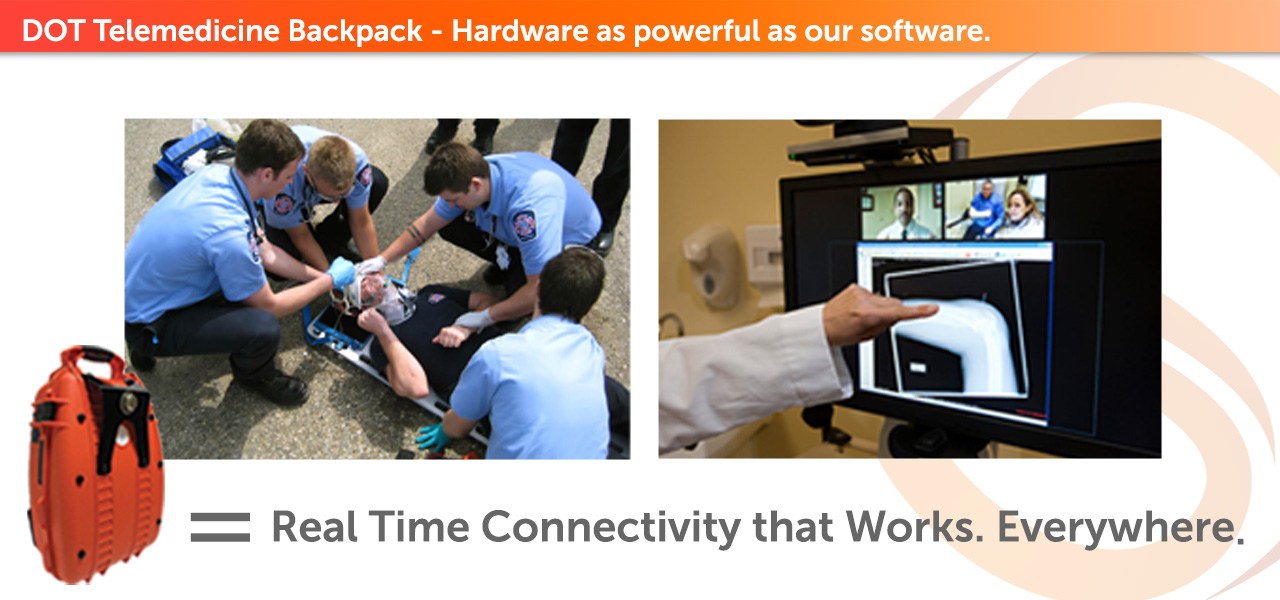
swyMed announced today that it has joined forces with the Commission on State Emergency Communications and Texas Tech University Health Sciences Center on a telemedicine pilot project to implement between EMS providers and a select group of trauma centers in rural West Texas. TTUHSC service area covers 108 counties and 131,459 sq. miles, which is larger than New York, New England, and the District of Columbia combined. The objective of the project, funded by Texas House Bill 479, is to improve patient outcomes by using telemedicine technology to bring the judgment of trauma surgeons into the back of ambulances to assess and direct treatment.
Currently, patients can be carried 30, 60, 90 minutes or more in an ambulance to the nearest hospital only to find that the facility is not equipped to handle their needs, or they can be airlifted to a Level I trauma center when their injuries could have been handled in a closer local hospital.
The telemedicine pilot project will focus on trauma, cardiac, and stroke EMS calls and is based on the idea of Remote Patient Evaluation (RPE), giving the physician the tools to see and observe the injuries and accident site so treatment can begin immediately and the patient is brought to the most appropriate destination for care, via the most appropriate means.
In the pilot, swyMed’s telemedicine equipment, including the DOT Telemedicine Backpack, is being installed in ten test ambulances, and LTE/4G cellular signal from Verizon and AT&T will be utilized to link those ambulances to both local trauma centers and University Medical Center in Lubbock.
Over the next four years as the program contract is renewed, additional ambulances and counties served will be added. Key to this initiative will be the ability to maintain quality connectivity in these most rural counties of West Texas, which swyMed accomplishes through its patented data transport protocol, carrier redundancy and the DOT Telemedicine Backpack’s unique design including enterprise class modems and a sophisticated antenna array.
“Telemedicine technology for emergency management situations, and particularly in rural geographies, requires specialized tools with the flexibility to find and make the most of the available carrier signals,” said Stefano Migliorisi, CEO of swyMed in a statement. “swyMed is thrilled to collaborate with Texas Tech University Health Sciences Center to demonstrate how real-time virtual care in remote areas can bring the right resources to bear to improve patient outcomes and the efficiency of the health care delivery system.”
